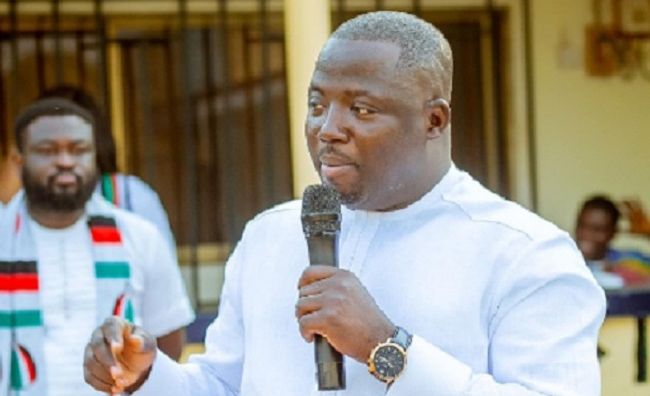The recent by-election in Ablekuma North, Ghana, has ignited a critical conversation about the role of violence in the country’s electoral processes. Mustapha Gbande, Deputy General Secretary of the National Democratic Congress (NDC), has voiced deep concerns over the escalating trend of election-related violence, particularly following the chaotic scenes that marred the rerun held on July 11th. Thugs disrupted voting, attacking voters, journalists, and election officials, casting a dark shadow over the democratic process. Gbande’s call for a shift in political discourse and strategy highlights the urgent need for a more peaceful and respectful approach to elections. He stresses the importance of political leaders taking responsibility for fostering an environment of peace and security, rather than inciting violence and animosity. The Ablekuma North by-election serves as a stark reminder of the fragility of democratic institutions and the precariousness of free and fair elections when violence becomes a tool of political maneuvering.
The violence witnessed in Ablekuma North has heightened anxieties surrounding the upcoming by-election in Akwatia, necessitated by the death of Member of Parliament Ernest Yaw Kumi on July 7th. Kumi’s passing, following a short illness and a protracted legal battle over his 2024 election victory, has further intensified the political atmosphere. Gbande’s condemnation of the threats of violence allegedly emanating from members of the New Patriotic Party (NPP) underscores the gravity of the situation. He cautions that such inflammatory rhetoric not only endangers lives but also erodes the democratic progress Ghana has achieved. The potential for violence in the Akwatia by-election looms large, emphasizing the need for proactive measures to ensure a peaceful and credible electoral process. The interplay of political rivalries, personal ambitions, and the legacy of past electoral disputes contributes to the volatile climate, demanding careful navigation and a commitment to peaceful democratic practices.
Gbande’s appeal for a paradigm shift in electoral conduct emphasizes the necessity of moving beyond the cycle of violence that has plagued recent elections. He challenges political leaders to find alternative methods of engagement that prioritize peace, respect, and the integrity of the democratic process. His question, “What if your gun doesn’t shoot and you don’t return home alive?” poignantly captures the potential consequences of resorting to violence and the shared responsibility of all stakeholders to ensure a safe and secure electoral environment. He advocates for a more constructive approach to political competition, one that focuses on policy debates and engaging with the electorate, rather than resorting to intimidation and violence. This call for a change in political culture requires a concerted effort from all political parties, civil society organizations, and the citizenry to create a more mature and peaceful democratic landscape.
The NDC’s stance on participating in the Akwatia by-election reflects the complex considerations surrounding the event. Gbande’s statement that the party has not yet decided whether to contest the by-election, choosing instead to focus on mourning the late MP, indicates a degree of sensitivity and respect for the deceased. This approach underscores the human dimension of political competition, acknowledging the loss of a colleague and prioritizing empathy over immediate political maneuvering. The decision to participate, Gbande notes, will be made after consultations with the party’s top leadership, suggesting a deliberate and measured approach to navigating the delicate political landscape. The party’s eventual decision will be closely watched, as it could significantly impact the dynamics of the by-election and the broader political environment.
The situation in Ghana reflects a broader challenge faced by many democracies, where the pursuit of political power can sometimes overshadow the fundamental principles of peaceful and fair elections. The events surrounding the Ablekuma North and Akwatia by-elections highlight the importance of strengthening democratic institutions, promoting respect for the rule of law, and fostering a culture of tolerance and peaceful dialogue. Addressing the root causes of electoral violence, including issues of poverty, inequality, and political polarization, is crucial for long-term stability and democratic consolidation. The role of civil society organizations, independent media, and international observers in promoting transparency and accountability is also essential in ensuring credible and peaceful elections.
The path forward for Ghana requires a collective commitment to upholding the principles of democracy and ensuring that elections are conducted in a free, fair, and peaceful manner. This entails fostering a political environment that encourages constructive dialogue, respects diverse viewpoints, and rejects violence as a means of achieving political objectives. The responsibility lies not only with political leaders but also with citizens, civil society organizations, and the media to actively participate in shaping a democratic culture that values peace, stability, and the rule of law. The upcoming Akwatia by-election presents an opportunity for Ghana to demonstrate its commitment to peaceful democratic processes and to set a positive example for other nations grappling with similar challenges. Learning from the experience of Ablekuma North and implementing concrete measures to prevent violence in future elections will be crucial for strengthening Ghana’s democracy and ensuring its long-term stability.


